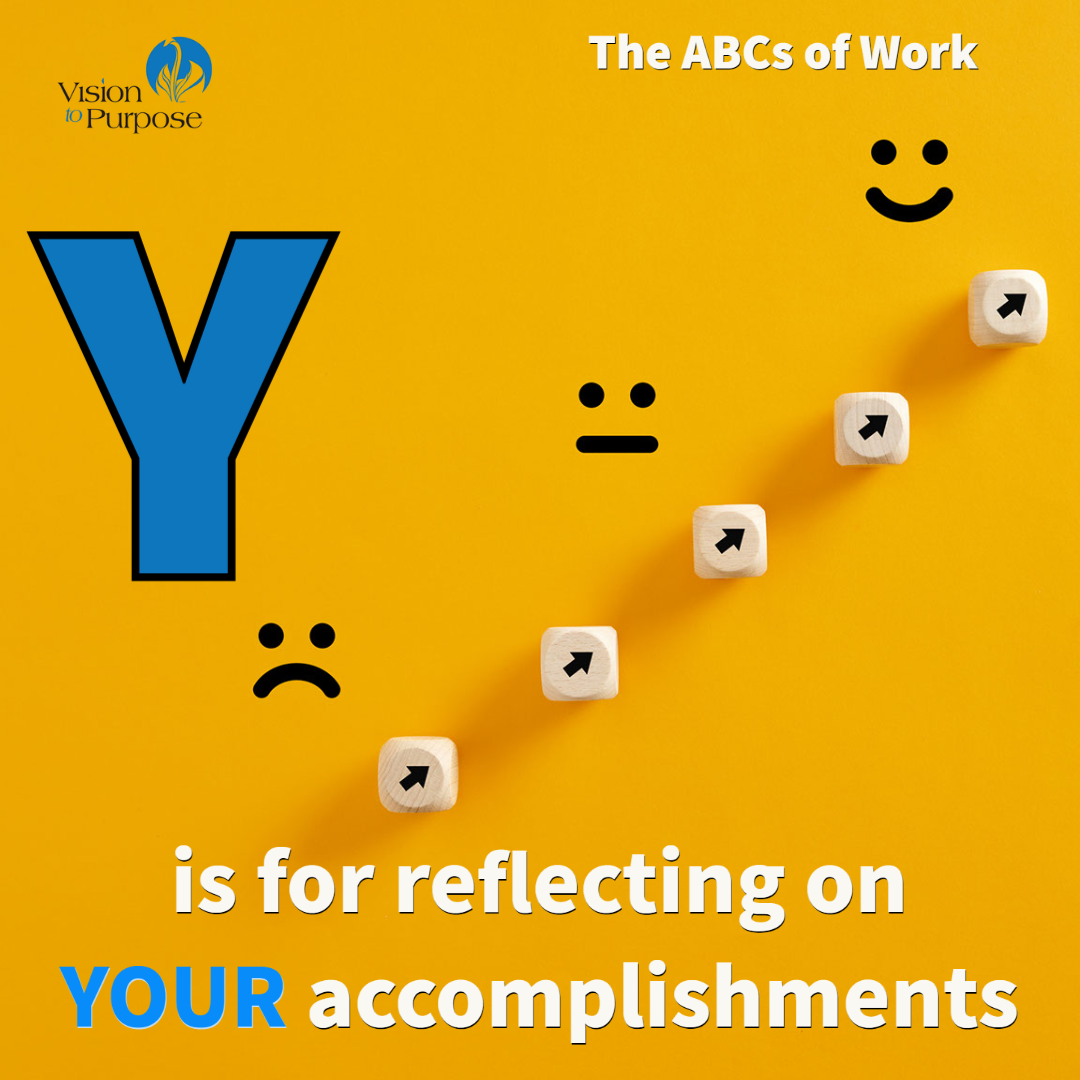
Reflecting on YOUR accomplishments
It is important to reflect on your accomplishments. Accomplishments, as you know, are the driving force behind a person’s professional and personal life, but how does one know if they are on the right track or if they’re falling behind? This article discusses the importance of tracking your accomplishments annually, shares what accomplishments should be included in your tracking, how often you should be recording them, and provides some tools for the tracking process!
The Importance of Tracking Accomplishments
Accomplishments, simply put, are the things you have achieved. As with all things of importance, you should be making a note of them! The best way to do this is to record them. I recommend, at a minimum, annually. Allow me to elaborate. Your accomplishments should be the overarching events that lead you down the path of professional (or personal) success. If you don’t reflect on them, how will you know you are accomplishing them?
Goals

You can think of accomplishment tracking like setting long-term goals. Much akin to how long-term goals can’t be achieved without short-term goals, whether it be a promotion, salary increase, positive performance review, etc. These milestones indicate that you’ve worked hard for your success. With simple psychology showing that completing small tasks in the morning can improve the rest of your day, tracking your accomplishments works similarly. By having an “accomplishments list,” you can use it to not only push yourself to strive for your next goal, but on the days in which you feel the World is cruel (we’ve all been there… several times) it can actually help relieve some of the stress and anxiety from those thoughts! Now, why would you want to track your accomplishments annually? The answer to this question is short and sweet, much like how we’ve discussed uplifting yourself. Tracking accomplishments annually does exactly that, as your year progresses, keeping that list of your accomplishments encourages you to fight for the next one.
What Accomplishments Should Be Included?
 Everyone thinks and feels differently, so there may be a difference of opinion for what should be included on their list of accomplishments. In light of trying to inspire as many people as possible, this section is going to have a lot of nuances and not too many specific examples. The following accomplishments are the most common for what should be tracked:
Everyone thinks and feels differently, so there may be a difference of opinion for what should be included on their list of accomplishments. In light of trying to inspire as many people as possible, this section is going to have a lot of nuances and not too many specific examples. The following accomplishments are the most common for what should be tracked:
- Positive performance reviews
- Skills learned
- Salary increase/s
- Successful projects
- Job promotions
- Awards
The rest of your list is entirely up to you (of course). Your accomplishments list should be tailored to you and your goals, so if you had a professional only list, well, keep that list to professional advancements. If it’s a personal list, use skills you’ve learned or places you’ve traveled to fill that list. The potential accomplishments truly are unlimited, however, the best lists are those that combine both the personal and professional. These combined accomplishment lists show what you were able to achieve in a professional environment and they show you were able to grow as a person, as cheesy as it sounds.
How Often Should Accomplishments Be Tracked?
Jumping right into it, accomplishment tracking is different for everyone. Don’t fear as there is no right or wrong way of tracking, instead I encourage trying different formats to see what appeals to you! There are two types of tracking, short and long term. Your short termers, as I’ll refer to for now, should be done in a way that is frequent enough to motivate you, but not infrequent enough to be discouraging. Weekly tracking may not work for some, as it may be too often. If that’s your experience, try monthly! The timeframe is up to you. Focus on being consistent. If you choose weekly, do it. If you choose monthly, do it. Again, whatever works for you.
Exceptional Tools For Tracking

Now that tracking accomplishments have been discussed, let’s talk about how to track. Keeping it short and sweet, tracking can be done a plethora of ways, whether it be digital or physical, both options are viable. My favorite tool for tracking is Google Docs. The interface allows information to be stored in an easy-to-read list format, documents can be never-ending, and both storage and searching (for a specific accomplishment or document in general) is exceptionally easy!
Another tool I like to use is Microsoft Excel. Noting your accomplishments in a spreadsheet provides a quick visual of what you did and when you did it. Depending how you layout the spreadsheet, you can create insightful charts to see your progress graphically. I find the visual charting aspect to be very helpful. Need help in finding a good way to track your accomplishments that will work for you, contact Vision to Purpose for expert advice.
Happy Tracking – You got this!
Zach
About the Author

Zachary Bennett is a new blog writer for Vision to Purpose. A recent graduate who transitioned successfully into the world of work, he has been quick to share his experiences to help others, especially his fellow zoomers (Gen-Z).
About Vision to Purpose
Dr. Jeannine Bennett is the founder and CEO of Vision to Purpose, an organization dedicated to helping individuals and businesses succeed by offering tailored career, business, and writing solutions.
Vision to Purpose specializes in helping people get jobs and writers become published, authors! Need a resume writer? How about a writing coach? Perhaps a business consultant? Look no further; Dr. Bennett and the Vision to Purpose team can help! You can learn more about Vision to Purpose by visiting www.visiontopurpose.com.








